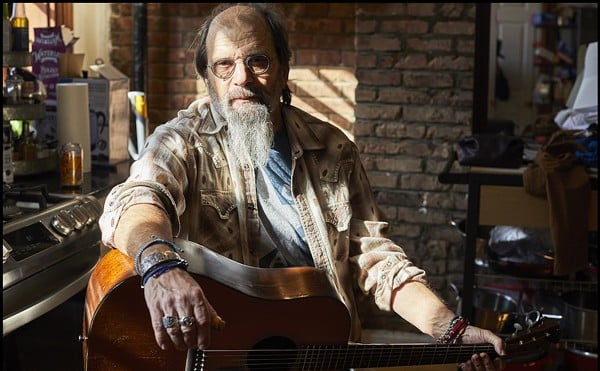|
L.P. with The Plains
Thursday · York Street Café
Singer/songwriter L.P. might just be the epitome of effective "word-of-mouth" in action. The New York City-based singer/songwriter (L.P. are her real initials, but she won't tell her real name) has earned a reputation for playing for small crowds, knocking out the handful of people who actually do show up and then returning to a full house. At a New Orleans tour stop, L.P. and her band had back-to-back shows and, on the second night, everyone from the first show had come back with a gaggle of friends. The enthusiasm was also transferred to local audiences; when L.P. played a nearly barren York Street Café in October of last year, those present demanded a return visit. Believe this: The place won't be empty this time around.
Ms. P got her start in the NYC Rock band Lionfish, which drew the attention of Cracker honcho David Lowery. She ended up singing on Cracker's Gentlemen's Blues album and on the record's subsequent tour. Lowery returned the favor by producing, co-writing and playing on her debut release, 2001's Heart-Shaped Scar (Koch). While straying somewhat from the rootsier elements of Scar, L.P.'s forthcoming release, Suburban Sprawl & Alcohol (due late spring), continues her practice of not settling into one cookie-cuttered style for too long. Sprawl seems a little more purposefully primed for Pop radio success, with ebullient, hook-heavy Power Pop like "Never Was" and "The Darkside."
But there is depth — "Suburban Sprawl" is a stunningly passionate and non-cliched ballad, on par with the peak emotive moments of Radiohead (think the heart-tearing crescendo of "Creep") or The Smashing Pumpkins (think the lush Mellon Collie-era romanticism). From there, she moves into the fist-pumping, Benatar-ian Hard Rock of "Heartless" and "Little Death" (with table-turning lines like, "I'm a dog for you but I move like a cat/I can't help it when you look like that") and the slick and swaggering "Get Over Yourself" (which, for better or worse, sounds like a Pink outtake), before coming full circle with the organic, gently-swaying Folk of "Cadillac Life."
Through the stylistic vaults, it is L.P.'s extraordinary voice and ability to not only convincingly sell a hook, but shrewdly fill up the spaces around them, that magnetizes. While her voice is shaped similarly to Gwen Stefani's, L.P. doesn't go the cartoonish baby-talk route, instead playing up the more soulful and less obvious aspects of her tone. It's still wildly seductive and attitudinal, like an empowered siren in a jean-jacket. Pssst. Tell a friend: L.P. is going to be huge. (Mike Breen)
Montgomery Greene with The Bombeat Slicks
Friday · Radio Down
Like fellow Indie Pop bands The French Kicks and Deathray Davies, there's an archly deceiving "retro-ness" to the sound of Dayton's Montgomery Greene. Upon initial inspection of their stellar album, Attack Culture (released last year on the late Cincinnati-based Unlike Label), the shimmering jangle, high-pitched, gritty vocals and buoyant Pop hooks might deceive the listener into thinking MG are the latest '60s Garage Pop revivalists. But, like the aforementioned bands, Montgomery Greene simply uses the tools of that time with a slightly more contemporary mindset. The songs themselves are the stars of the show; with their impulsive arrangements, an MG song flirts with familiarity, but singer/guitarist/songwriter Kyle Melton isn't cemented in tradition, frequently taking the songs in unanticipated directions. The album's first several cuts have the "bif, bam, pow" sizzle of vintage Mod ("Past Frozen" is particularly stand-out), but as the album progresses the writing and performances get more adventurous. The blissfully deranged instrumental, "Thanks to Bennett," is a swirling head-trip of fuzzy Psychedelia (a la Syd-era Floyd). Elsewhere, "Avalanche Past Stars" has an almost Emo-like dynamic, but with better melodies and lyrics. MG follow their analog hearts in a digital era, using a Kinks/Seeds-like cornerstone upon which to build their tight, mini-symphonies of shaggy, supercharged Power Pop. (MB)
The Von Bondies with Shesus and The Cathedrals
Saturday · Southgate House
Detroit's legendary position in contemporary music history was secured with the mid-'60s bi-polar extremes — the Pop magic of Berry Gordy's Motown hit factory and the visceral Rock mayhem of the Stooges/MC5/Nugent scene. Those two schools of influence have disseminated like gossamer seeds from a windblown dandelion throughout the musical community over the past four decades. It's no surprise that the Von Bondies, the full throttle Detroit Garage Rock quartet, should reflect their Stooges roots, but it's the Motown references that tend to raise eyebrows. To be fair, the Von Bondies only marginally exhibit either influence directly on Pawn Shoppe Heart, the band's third album and major label debut. It's the subtle manner in which the VBs incorporate their Detroit heritage of bonehead Rock and passionate Soul into a sonic gumbo that also includes Otis Redding, Screamin' Jay Hawkins and Eric Burdon. Guitarist/vocalist Jason Stollsteimer has a hypnotic way of weaving his forefathers into his singular presentation without sounding derivative or stale. The thunderous opening riff of "No Regrets" finds Stollsteimer and fellow guitarist Marcie Bolen attacking a simple structure with the hell-bent fervor of everyone from Ron Asheton to Joe Perry while making it clearly their own. By the time the Von Bondies get to the howling-mad hidden cover of "Try a Little Tenderness" at the end of Pawn Shoppe Heart, it's obvious that Detroit's influence isn't merely in the city's history, it's in the fiercely individual natures of each successive Motor City generation. And like every great Detroit outfit from any genre, the studio is only half of the equation; the stage is where the Von Bondies truly live up to their illustrious Detroit lineage. (Brian Baker)
The Dillinger Escape Plan
Saturday · Radio Down
I cling to the belief that every time a self-indulgent band doubles their fanbase, an angel gets its wings. If so, The Dillinger Escape Plan is definitely responsible for a few pairs. The exponential growth of these North Jersey Math Metal mongers has had everything to do with their insane, full-throttle complexity, which attracts devotees of both Hardcore and experimental music. To listen to their first EPs, you'd think they knew their success was preordained. There are no attempts to appeal to anyone but themselves, and the figurative "Escape" in DEP is not from the law, but from the boredom of run-of-the-mill Metal and Punk music. Many of their violent swirls are not immediately appealing, but repeated listening reveals nuance and woven structures hiding in the buzz saw riffs and car crash drumming, and after a few spins, the invisible hook is set. The cult popularity of their first albums established them as underground Mathcore heroes, and a series of breaks was on the horizon. DEP's first full length, Calculating Infinity, was a triumph of genre alchemy, augmenting their exhausting style with Progressive elements. Coincident with this release, the band secured a slot opening for Mr. Bungle, which springboarded them to a series of headlining tours in 2000. It also set the stage for their one-off collaboration with Mike Patton (Mr. Bungle, Faith No More, Fantomas, etc.), the Irony is a Dead Scene EP. This gem was another leap forward for the band musically and introduced DEP to legions of Pattonheads, expanding their listenership yet again. When they hit Radio Down they'll be testing material for their upcoming disc. This is a huge national show for the new club, and will also test the architectural mettle of the second-floor establishment. Let's hope the unsuspecting patrons below at Tickets Sports Bar won't need an escape plan. (Ezra Waller)





